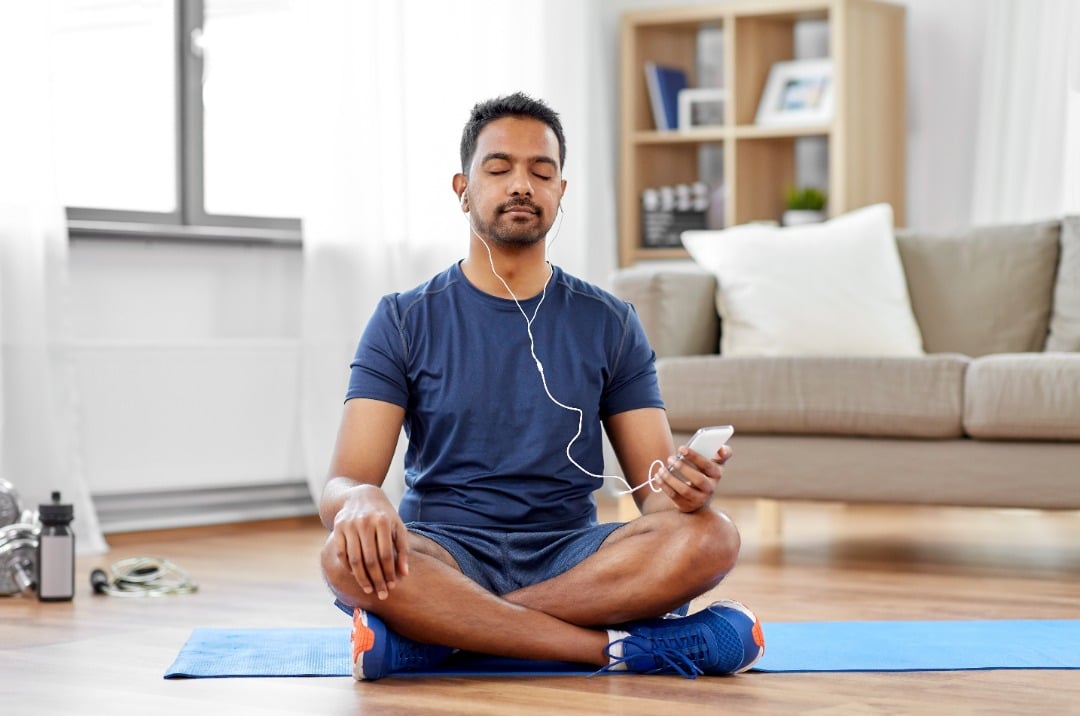Understanding Addiction Holistically

1. Physical Wellness
2. Emotional Balance and Total Wellness
3. Spiritual Connectivity
4. Nutrition and Brain Function
The Power of Holistic Healing
Storytelling (Talk & Cognitive Behavioral Therapy)
Dancing (Taking Care of Your Physical Body)
Silence (Mindfulness & Meditative Approaches)
Singing (Music Therapy)
Exploring Additional Holistic Modalities
1. Mindfulness Studies
2. De-stressing Meditation & Breathwork
3. Aromatherapy
4. Reiki Healing
5. Spiritual Counseling & Guidance
6. Relaxation & Sound Therapy
7. Crystal Energy Therapy & Chakra Re-Balancing
8. Tapping & Reprogramming Meditation
9. Full Body Reflexology
The Journey Towards Recovery
The Expansive World of Holistic Addiction Recovery: A Deep Dive into Healing and Wellness
The Foundation of Holistic Healing
The Physical Component of Holistic Recovery
-
Detoxification and Physical Healing
Physical wellness is a crucial pillar of holistic addiction recovery. It begins with the process of detoxification, where the body rids itself of harmful substances. This can be a challenging and uncomfortable phase, as withdrawal symptoms manifest. Holistic addiction recovery recognizes the need for personalized medical care during detox, which encourages the body’s natural ability to restore health. This approach is different from the traditional one-size-fits-all detox programs, as it tailors the treatment to the individual’s unique needs. Addressing withdrawal symptoms, both acute and post-acute, is a vital aspect of physical healing. These symptoms can vary widely depending on the substance of abuse, but they often include anxiety, depression, insomnia, and physical discomfort. By providing tailored support and care, holistic recovery helps individuals navigate this challenging phase with greater comfort and safety. Holistic detox also emphasizes the importance of nutrition during this phase. Balanced nutrition is essential for optimal neurochemical function, which contributes to better emotional well-being. A diet rich in the necessary nutrients helps to replenish and regenerate health, setting a solid foundation for recovery. -
Physical Fitness and Exercise
Physical fitness is another fundamental element of holistic recovery. Exercise is known to have a profound impact on emotional well-being. It triggers the release of endorphins, often referred to as “feel-good” hormones, which reduce feelings of depression and anxiety. Engaging in regular physical activity not only improves physical health but also supports emotional and mental well-being. Many individuals find that even a simple, moderately-paced jog can produce an uplifted mood. However, holistic recovery offers a wide range of exercise options to cater to individual preferences and needs. Eastern approaches like Qi Gong, Yoga, and Yogic Mudras and Mantras practices offer unique benefits. These practices focus not only on physical fitness but also on building a healthy relationship with oneself and others. The mind-body connection is a central theme in holistic addiction recovery, and these practices foster self-awareness, balance, and inner peace. -
Nutrition and Brain Function
Nutrition plays a critical role in holistic addiction recovery, particularly in maintaining brain function and emotional balance. Substance abuse can deplete the body of essential nutrients, leading to imbalances in neurochemicals and mood disturbances. By addressing eating habits and promoting balanced consumption of nutrition, holistic recovery supports brain health and emotional stability. A diet rich in nutrients essential for brain health can aid in repairing the damage caused by addiction. Key nutrients include omega-3 fatty acids, amino acids, vitamins, and minerals. These nutrients are involved in neurotransmitter production and function, which can significantly impact mood and emotional well-being. Holistic recovery programs often provide education and support in making healthier dietary choices. This includes understanding the role of specific nutrients in emotional balance, as well as meal planning and preparation. By addressing nutritional needs, individuals in recovery can improve their overall well-being and enhance their chances of long-term success.
The Emotional and Mental Component of Holistic Recovery
-
Meditation and Mindfulness
Meditation is a powerful tool for promoting emotional and mental well-being. It is a practice that encourages individuals to be fully present in the moment and to observe the nature of their experience. This can begin with something as simple as paying attention to one’s breath. The benefits of mindfulness meditation have been well-documented and include a range of physiological benefits. Even a short daily meditation practice, as brief as 10 minutes, has been shown to have significant positive effects. Scientists have examined the brains of long-term meditators and discovered remarkable changes. Practicing meditation allows individuals to experience physical pain and emotional distress differently by increasing awareness of the experience. For those in recovery from active addiction, mindfulness meditation can be a powerful tool for identifying cravings and urges before acting on them. This heightened awareness can be the difference between relapse and sobriety. -
Cognitive Behavioral Therapy
Cognitive Behavioral Therapy (CBT) is a widely accepted form of talk therapy that has proven effective in both substance abuse treatment and mental health therapy. It’s based on the idea that our thoughts, feelings, and behaviors are interconnected, and by identifying and changing negative thought patterns, individuals can modify their behaviors and improve their emotional well-being. In the context of addiction recovery, CBT helps individuals identify the thought patterns and triggers that lead to substance abuse. By understanding these triggers and developing coping strategies, individuals can break the cycle of addiction and replace it with healthier behaviors. A key aspect of CBT is the importance of sharing one’s thoughts, feelings, and ideas in a safe and supportive environment. This communication can be transformative, as it allows individuals to process their experiences and gain insight into their behavior. -
Music Therapy
Music therapy is a unique modality in holistic addiction recovery. Music has a profound impact on emotions and can serve as a powerful tool for emotional expression and healing. It provides a creative outlet for individuals to connect with their feelings and release emotional tension. Music therapy can take various forms, including playing instruments, singing, or even simply listening to music. In group settings, individuals can come together to create music and share their experiences. This communal aspect fosters a sense of belonging and support, which is essential in recovery. Drumming is one form of music therapy that has gained popularity in holistic recovery. It induces relaxed mental states and helps release feelings of anxiety and tension. Drumming, when combined with deep breathing and visualization techniques, offers even more significant stress reduction and total body-mind-spirit rebalancing.
The Spiritual Component of Holistic Recovery
-
Spiritual Exploration
Spirituality in holistic addiction recovery is about discovering what moves and inspires you. It’s a deeply personal journey that often involves questioning, seeking, and connecting with your inner self. Spiritual exploration allows individuals to tap into a source of strength and serenity that transcends addiction. This journey can involve a variety of practices, such as prayer, meditation, or connecting with nature. It encourages individuals to explore their beliefs, values, and inner passions. In this process, many individuals find a renewed sense of purpose and inner peace. -
Holistic Recovery Communities
Holistic recovery encourages individuals to participate in supportive and sober communities. These communities provide a sense of belonging and connection, fostering the idea of “tribal consciousness.” Being part of a community that shares a commitment to recovery can be a powerful motivator. Gathering in supportive environments, such as drum circles, offers a unique opportunity for connection and healing. Drumming, in particular, is a form of meditation that induces relaxed mental states, reducing anxiety and tension. The combination of drumming, deep breathing, and visualization techniques creates an environment conducive to stress reduction and overall body-mind-spirit rebalancing. Engaging with like-minded individuals in these communities promotes mutual support and the sharing of experiences and knowledge. It can serve as a source of inspiration, accountability, and friendship. -
Personal Exploration and Authenticity
Part of spiritual connectivity in holistic addiction recovery is the exploration of one’s authenticity. This journey involves self-discovery and self-acceptance. It’s about understanding what truly matters to you and finding the courage to live in alignment with your values and beliefs. Addiction often leads individuals away from their authentic selves, as substances become a way to cope with emotional pain or mask inner turmoil. Holistic recovery helps individuals peel away the layers of addiction to rediscover their core identity. Exploring your authenticity can be a profoundly healing process. It empowers individuals to make choices that align with their true values and passions, promoting lasting recovery and a greater sense of fulfillment.
A Comprehensive Approach to Holistic Recovery
-
Mindfulness Studies
Mindfulness meditation is more than just a relaxation technique; it’s a way of life that is conducive to recovery. Mindfulness encourages individuals to become fully present and aware in each moment, which can bring greater joy and serve as a preventative tool against impulsive and harmful actions. Living mindfully means being conscious of one’s actions, thoughts, and emotions. It involves a non-judgmental acceptance of the present moment, which can lead to greater emotional balance and self-control. By practicing mindfulness, individuals in recovery can develop the tools to dissolve the propensity for impulsive and negative actions. It promotes a sense of self-awareness and personal growth, which are essential in breaking free from addiction. -
De-stressing Meditation and Breathwork
Proper posture and awareness of the breath are transformative tools in holistic addiction recovery. Breathwork is a practice that involves focused attention on the breath, which can transform and heal difficult emotional states. It’s a simple yet powerful technique that helps individuals become more centered and grounded. Deep breathing exercises, often used in breathwork, can also contribute to a strengthened immune system. By fostering deep, rhythmic breathing, individuals can maintain a balanced alkaline state in the body, promoting overall well-being. Practicing breathwork provides individuals with a portable tool for stress reduction and emotional regulation. It allows them to manage the challenges of recovery more effectively and develop a greater sense of inner calm. -
Aromatherapy
Aromatherapy is a holistic modality that involves the use of aromatic essential oils to promote well-being. Aromatherapy sessions can invite a sense of calm and relaxation, balance subtle energies of the body, and bring forth emotional and psychological healing. Scents have a powerful influence on emotions, and specific essential oils are known to have unique effects on mood and mental state. For individuals in recovery, aromatherapy can serve as a natural means to achieve a sense of calm and relaxation. Aromatherapy sessions often include the use of essential oils like lavender, chamomile, and frankincense, which are renowned for their calming and soothing properties. These sessions can be incorporated into holistic recovery programs to help individuals manage stress and promote emotional well-being. -
Reiki Healing
Reiki is a Japanese hands-on healing technique that can be a valuable addition to holistic addiction recovery. It involves the gentle placement of hands on or near the body, allowing healing energy to flow and restore balance. Reiki can be used to treat physical pain, emotional distress, and to bring a state of peace, calm, and serenity. In Reiki sessions, practitioners act as conduits for healing energy, which is directed to the recipient’s body, mind, and spirit. The energy is believed to help clear blockages and promote the flow of life force energy, which is essential for overall well-being. Many individuals find that Reiki sessions provide a deep sense of relaxation and a reduction in emotional and physical discomfort. This holistic modality can be a valuable tool in addiction recovery, promoting healing and balance on multiple levels. -
Spiritual Counseling and Guidance
Traditional talk therapy is often complemented by recovery-oriented spiritual support in holistic addiction recovery. Spiritual counseling and guidance provide individuals with an opportunity to explore their beliefs, values, and inner passions, which are vital aspects of self-discovery and healing. Addiction often leads individuals away from their core values and authentic selves. Spiritual counseling helps individuals reconnect with their inner values and passions, which can provide a strong foundation for recovery. It promotes personal growth and inner peace, supporting individuals in their journey toward lasting transformation. -
Relaxation and Sound Therapy
Sound therapy is a holistic modality that utilizes vibration and sound to affect the subtle energies of the body. It can help individuals release emotional blockages and achieve a state of relaxation. Sound therapy can be applied in various forms, including the use of instruments like Crystal Singing Bowls and Tibetan Bells. Crystal Singing Bowls produce pure, resonant tones that are believed to promote emotional release, relaxation, and the balancing of energy. The soothing sound of these bowls can provide individuals with a deep sense of calm and inner peace. Similarly, Tibetan Bells, also known as Tibetan Singing Bowls, are used in sound therapy to promote relaxation and balance. The vibrations produced by these bells are thought to affect the body’s subtle energies, helping to release emotional blockages and promote overall well-being. Sound therapy can be a powerful tool for stress reduction and total body-mind-spirit rebalancing. It provides individuals with a means to achieve deep relaxation and emotional release, contributing to their overall well-being. -
Crystal Energy Therapy and Chakra Re-Balancing
Crystal energy therapy involves the use of crystals and gemstones to promote physical and energetic healing. Each crystal is believed to have its unique properties and healing energies. In holistic addiction recovery, individuals can learn to become more attuned to ancient teachings and connect with the subtle energies of the chakras. Chakras are energy centers in the body, and they play a crucial role in overall well-being. Each chakra is associated with specific attributes, and imbalances in these energy centers can lead to emotional and physical distress. By using crystals to balance and clear the chakras, individuals can promote greater alignment with their true selves. This approach to healing encourages a deeper connection with the body’s needs and with Earth-Centric Spirituality, which can be a profound aspect of holistic recovery. -
Tapping and Reprogramming Meditation
Tapping, also known as Emotional Freedom Techniques (EFT), is a meditation type that focuses on reconditioning patterns and unhealthy habits of addiction. It involves the use of acupressure points while repeating affirmations to create positive change. In this type of meditation, individuals learn how awareness of the breath and connecting to positive affirmative thinking can transform and heal difficult emotional states. Tapping is often used to address not only addiction but also persistent symptoms stemming from trauma and post-traumatic stress disorder (PTSD). By reprogramming thought patterns and emotional responses, individuals can break free from the cycle of addiction and develop healthier ways of thinking and coping. Tapping can be a valuable tool for lasting recovery and personal growth. -
Full Body Reflexology
Reflexology is a physiological healing modality that focuses on the interconnectedness of the mind, body, and spirit. It is based on the concept that specific points on the hands, feet, and ears correspond to various organs and systems in the body. By applying pressure to these points, reflexology can promote relaxation, balance, and healing. It allows individuals to gain a deeper understanding of the interconnections within their bodies and energy systems. Full body reflexology provides individuals with insights into the wholeness of their physical and energetic beings, contributing to total health and well-being. This holistic modality can be a valuable addition to addiction recovery programs, promoting self-awareness and personal growth.
Embracing a New Beginning
Comprehensive Holistic Recovery Programs
The Role of Holistic Practitioners
Finding the Right Holistic Approach for You
Incorporating Holistic Recovery into Your Life
Integrating holistic recovery into your life is a transformative process. It involves embracing the interconnectedness of the mind, body, and spirit and exploring the various modalities and practices that promote well-being. Here are some steps to help you incorporate holistic recovery into your life:
- Educate Yourself: Take the time to learn about the different holistic modalities and approaches available in addiction recovery. Understanding the principles and benefits of each modality can help you make informed choices.
- Seek Professional Guidance: Holistic practitioners and therapists can provide guidance and support as you explore holistic recovery. They can help you tailor a personalized plan that aligns with your needs and goals.
- Explore Different Modalities: Try out different holistic modalities to discover what resonates with you. Experiment with meditation, breathwork, music therapy, or any other approach that piques your interest.
- Embrace Self-Discovery: Holistic recovery is not just about healing; it’s also about self-discovery and personal growth. Embrace the journey of getting to know yourself better, understanding your values, and living authentically.
- Build a Support System: Join holistic recovery communities and groups that share your commitment to well-being. Connecting with like-minded individuals can provide inspiration and support on your journey.
- Practice Mindfulness: Incorporate mindfulness into your daily life. Whether through meditation, deep breathing exercises, or simply being present in your activities, mindfulness can help you stay grounded and focused on your well-being.
- Make Healthy Lifestyle Choices: Holistic recovery also includes making healthy lifestyle choices. Prioritize nutrition, exercise, and self-care to support your physical and emotional well-being.
- Embrace Your Spirituality: Explore your spirituality and connect with your inner self. Whether through prayer, meditation, or nature, embracing your spirituality can be a source of strength and serenity.
- Set Goals and Celebrate Achievements: Set well-being goals for yourself and celebrate your achievements along the way. Small victories are significant milestones on your journey to holistic recovery.
- Stay Committed: Holistic recovery is a journey, and it requires commitment and dedication. Stay focused on your well-being and be patient with yourself as you progress.
The Holistic Path to Addiction Recovery
Holistic addiction recovery is a transformative journey that addresses the interconnectedness of the mind, body, and spirit. It provides individuals with a comprehensive approach to healing and well-being, offering a world of possibilities and tools for lasting transformation. Embracing holistic recovery involves exploring various modalities, practices, and approaches to well-being.
It is a deeply personal journey of self-discovery, self-acceptance, and personal growth. By embracing the principles of holistic recovery, individuals can break free from the chains of addiction and embark on a path towards lasting transformation and well-being. Holistic recovery is not just about healing from addiction; it is about discovering the true essence of yourself and living a life aligned with your values and passions. It is a journey towards freedom, well-being, and a new beginning. Holistic addiction recovery offers a world of possibilities and tools for healing and transformation.
It is a journey of self-discovery, self-acceptance, and personal growth. By embracing the interconnectedness of the mind, body, and spirit, individuals can break free from the chains of addiction and embark on a path towards lasting transformation and well-being. Start your journey towards holistic recovery today at Silver Pines and discover the power of healing in its entirety.





